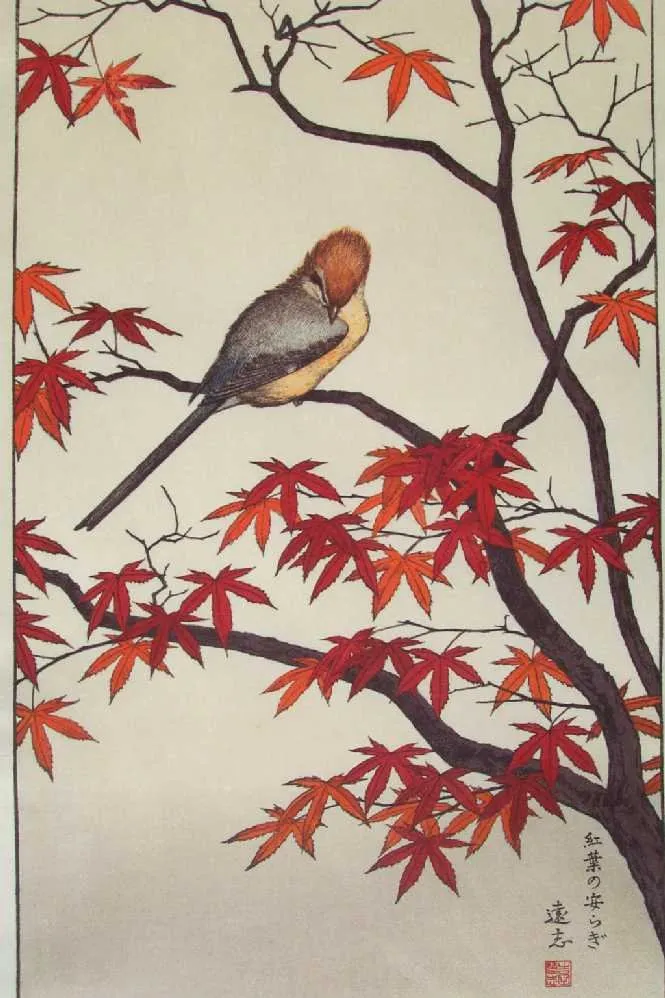this morning I was cold
a day in autumn

Autumn is a beautiful season, but the changeable temperature is tough on our bodies. Cold in the morning, hot in the afternoon, cool again in the evening. Our bodies never quite have time to adjust to either extreme—no wonder that this is cold and flu season.
I was flipping through my saijiki looking for a kigo that expressed this idea. I couldn’t quite find what I wanted. But then I happened to glance at one of the first listed kigo for the season: 秋の日, aki no hi, "autumn day", or "a day in autumn". I read the description and some of the sample haiku using it and it hit me—of course, haiku are never so specific. Autumn weather is changeable. That is understood. Simply referring to the season is enough to already conjure up feelings of the changeable weather. There is no need to specific more.
This may be more of an Eastern way of thinking, but it is also a haiku way of thinking. Japanese words generally contain more syllables than English words[1], thus 17 syllables make for a much shorter poem in Japanese than it does in English[2]. That in mind, in a Japanese haiku it is more or less impossible to be specific; suggesting many things with a single word then becomes the only way to talk about things.
I know this, but sometimes I forget, as I try to be too exact, in a Western sort of way, I suppose.
❦

Join Us ~ Share Great Poetry ~ Blockchain Poets
 |
David LaSpina is an American photographer and translator lost in Japan, trying to capture the beauty of this country one photo at a time and searching for the perfect haiku. |
If this blog post has entertained or helped you, please follow/upvote/reblog. If you want to further support my writing, donations are welcome.
Technically syllables in Japanese aren’t the same as syllables in English. I’ve written about this before and will again. But for our purposes, they are similar enough to be considered the same thing. ↩
Many scholars suggest that a syllable count in English of 3/5/3 would be closer to the Japanese haiku. I agree. ↩
